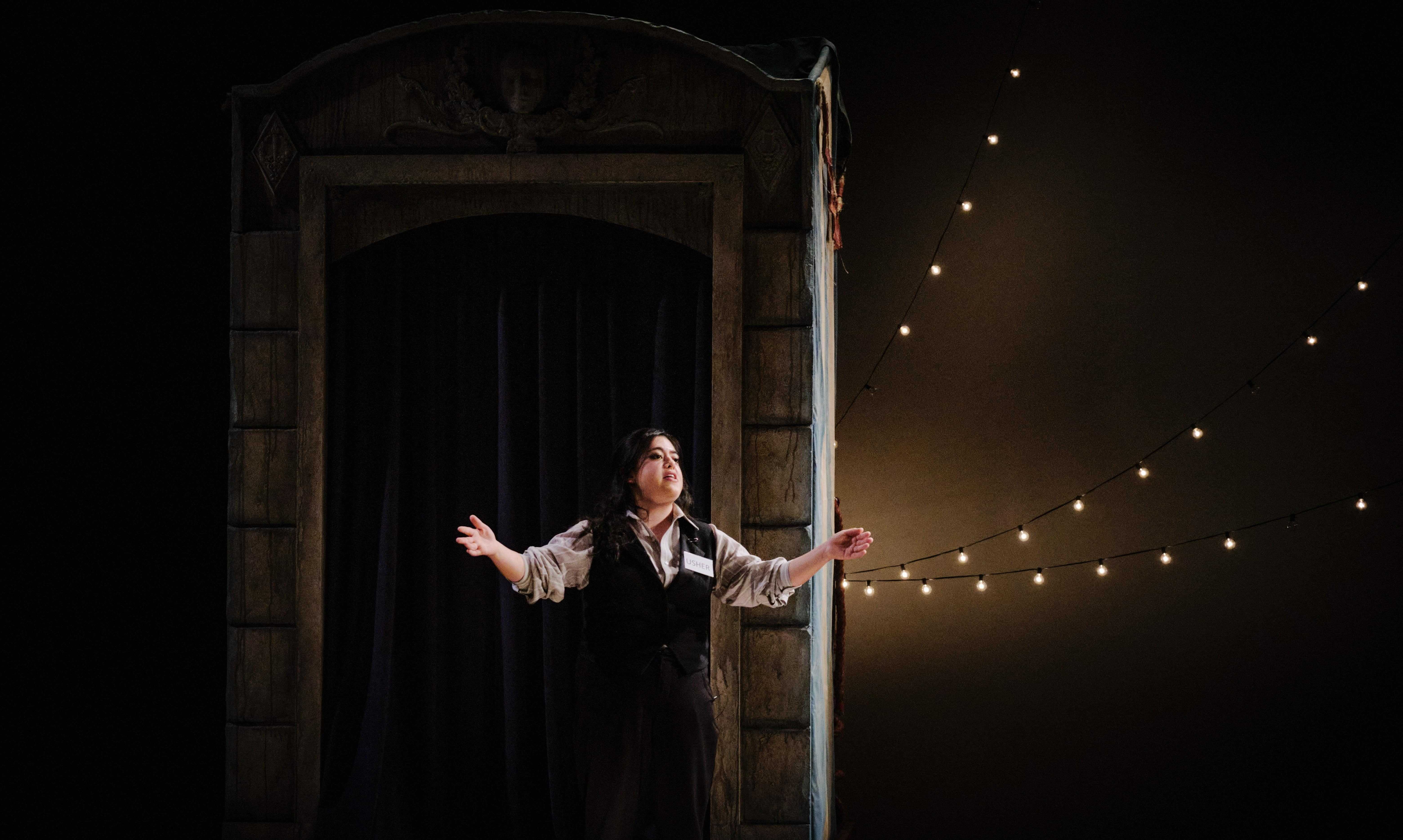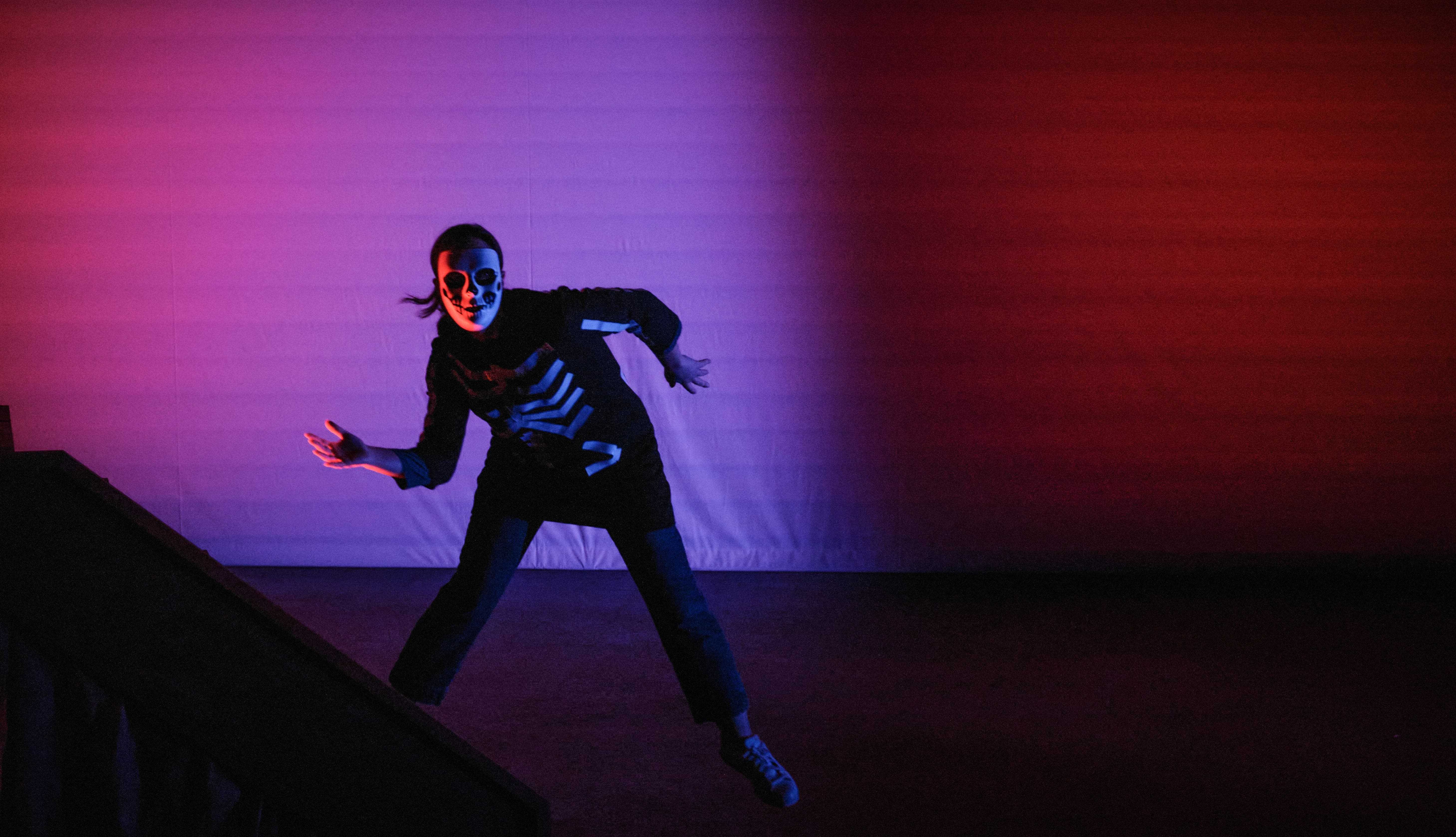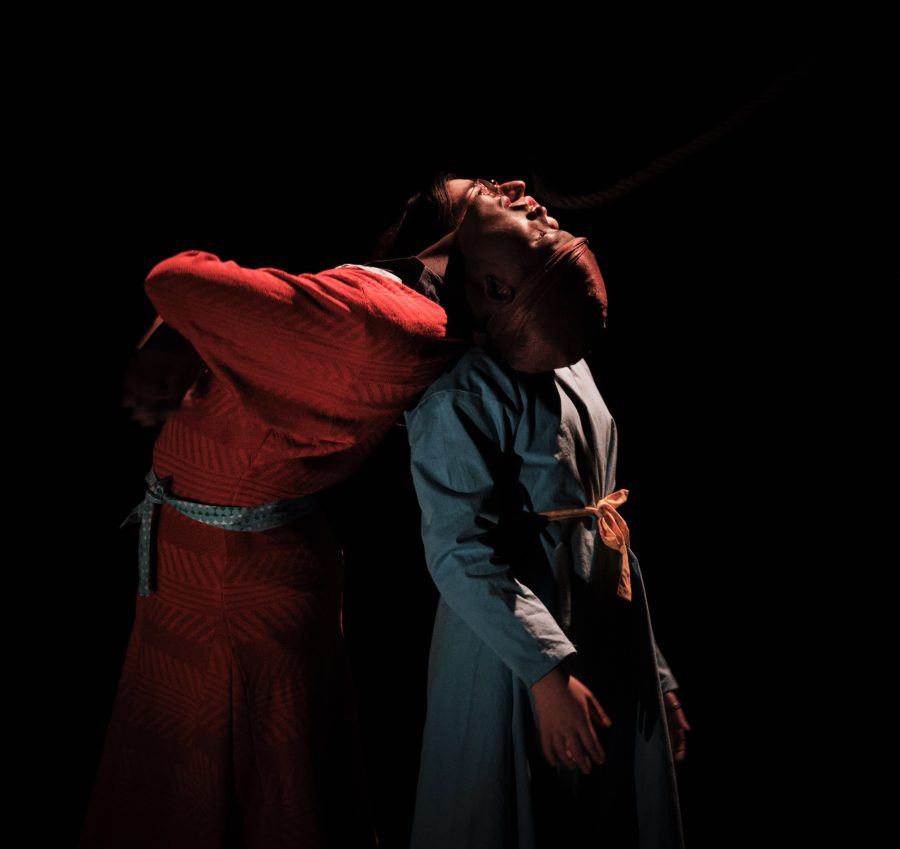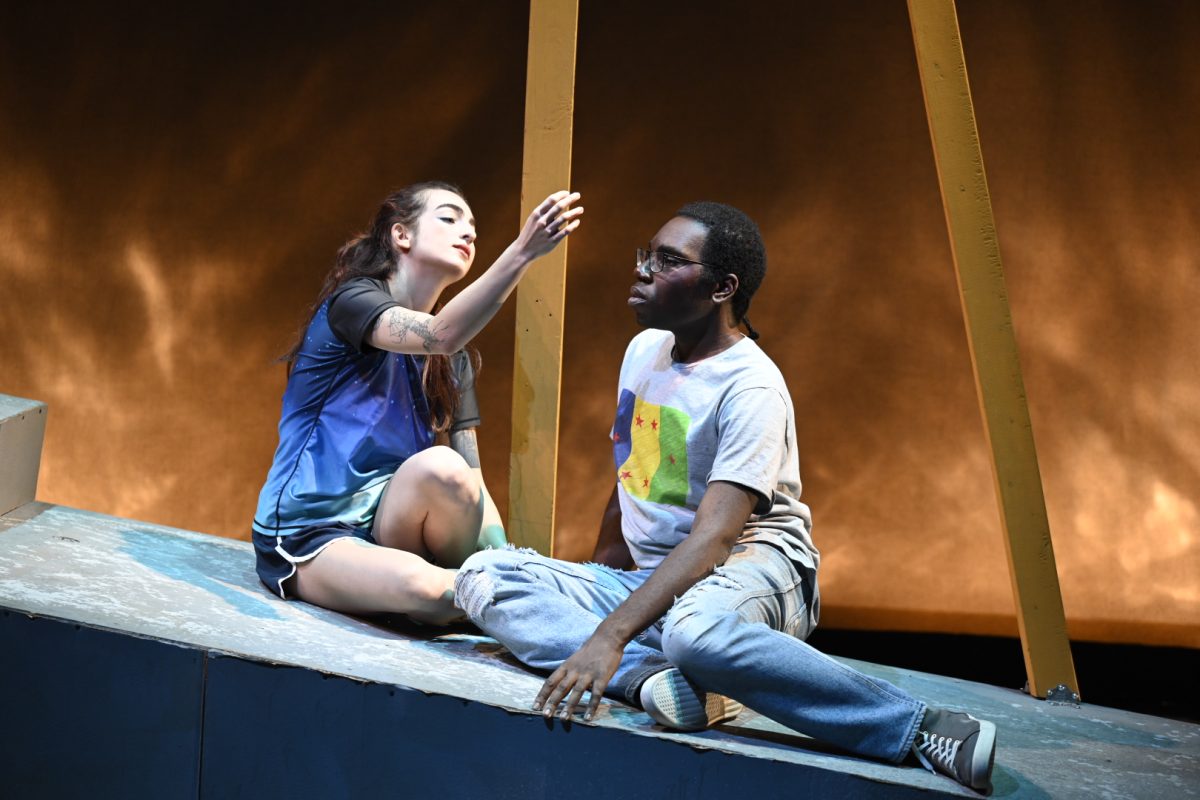Photos by Lev Shuster
If one were planning to reckon with their own mortality and existentialism, I can truly think of no better place than the comfort of a plush seat in the Weitz Theatre while watching “Everybody.” Throughout the duration of this metaphysical fever dream, one is forced to grapple with a great deal of questions – which, as in any good play, one won’t get many answers to.
In their first in-person performance since the start of the pandemic, the cast of “Everybody” sure makes us remember what we had so dearly missed. Nicolo Del Negro ’23, a recent audience member, says, “It was amazing to see these talented actors come together and perform after such a tough period in the theatre world.”
But like in any production that must be riveting enough to make ninety minutes worth it, there’s a twist: the actors do not know which role they will be playing until the play has already begun. While there are some set roles such as Death, Love and God/Usher/Understanding, the majority of the actors had to learn nearly every line in the show, as they would be asked to recall any of them at a moment’s notice. But, as cast member Will Josowitz ’22 says, “that’s what the show calls for so that’s what we do. You can’t get bogged down in the details of each character and you can’t compare your performance to others. You have to be ready to play a character that you haven’t played for over a week and just trust your mind, body and other cast members that you know what you’re doing.”
Nevertheless, one can imagine this leads to an incredibly difficult production process. As Hannah Sheridan ’23, another one of the actors, says, “I chose to do this show because it was unlike anything I have ever done before. The mental challenge was completely new to me. I have never been in a show where the logistical/memorization heavy lifting took up so much energy and brain space. At the same time, it asks a lot of the actors in terms of vulnerability – I felt very exposed in more ways than one. But I had fellow cast members who were all going through the exact same thing, and finally putting it out in front of people and pulling it off successfully felt amazing.”
For an audience member, this vulnerability is utterly captivating and makes the larger themes of the show that much more impactful. For Ayman Rahadian ’23, the intensity of emotion, “has everyone in the theater constantly engaged with every single part of the show.”
While these elements are impressive, it is not just the sheer amount of memorization and fierce emotion that makes this an intense show to watch. The play follows the main character, Everybody, as they come to terms with their imminent death, , introducing other abstract characters along the way such as Friendship, Kinship and Stuff to accompany them to the “other side.” By choosing to portray these abstract concepts as characters within the story, the show prompts self-reflection and examination of the social institutions we rely on. It has no interest in subtlety when invoking its metaphorical intentions and pokes fun at the very nature of being human, what our humanity means within a greater society and the inconsequential questions we choose to fill our time with.
But at its core, “Everybody” is a message of love, and, for Bahar Tas ’23, an important reminder of our shared human experience. Tas states, “The whole lottery system and randomness of becoming Everybody among all the Somebodies on a given night is a perfect representation of the blurry line that divides ‘human’ from ‘humanity.’ The things we face in life and death are just part of a shared human experience, but we still end up going through that same path as an individual, making it our own. I don’t think this play had a moral despite following the steps of a morality play, but I would say it does a great job reminding us all that we are not alone in our loneliness.”
Following the pandemic, this message rings true more than ever before. As Carleton begins to tentatively resurface after a year of social distancing, “Everybody” is poised to be significant for our greater campus community as it comes at a time when a conversation about our shared humanity can help bring us closer together.
If you haven’t engaged in a deep reflection on your own humanity recently, you still have two more opportunities to see “Everybody.” There will be two performances on Saturday, October 30th, at 2:00 p.m. and 7:30 p.m.















